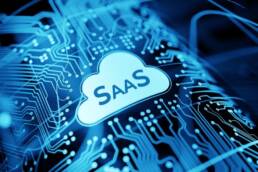In the expansive realm of Enterprise Software as a Service (SaaS), where data flows like a digital tide, the imperative of effective data governance cannot be overstated. As businesses entrust critical information to cloud-based solutions, ensuring the integrity, security, and compliance of that data becomes paramount. In this article, we’ll explore the significance of data governance in enterprise SaaS, the challenges it presents, and strategies for navigating the data seas with confidence.
The Significance of Data Governance
Data is the lifeblood of modern businesses, and within the context of enterprise SaaS, effective data governance is the compass that guides organizations through the complexities of data management.
Ensuring Data Integrity and Quality
Robust data governance practices safeguard the integrity and quality of data. From accurate customer records to precise financial data, businesses rely on the consistency and accuracy of information to make informed decisions. Data governance establishes the framework for maintaining these standards.
Security in the Cloud Age
As businesses embrace cloud-based SaaS solutions, the need for stringent data security measures intensifies. Data governance encompasses policies and controls that protect sensitive information from unauthorized access, ensuring that data remains confidential and secure, even in a distributed and dynamic digital landscape.
Challenges in Data Governance within SaaS Environments
While the benefits of data governance are clear, managing data effectively in the cloud presents unique challenges that organizations must navigate.
Data Silos and Fragmentation
The adoption of multiple SaaS solutions can lead to data silos, where information is isolated within specific applications. This fragmentation hampers the ability to gain holistic insights and can lead to inconsistencies in reporting.
Compliance Complexity
Data governance is closely tied to regulatory compliance, and adherence to data protection laws becomes more complex in cloud environments. Businesses must navigate the intricacies of regulations like GDPR, HIPAA, or industry-specific standards while leveraging SaaS solutions.
Strategies for Effective Data Governance in Enterprise SaaS
To ensure effective data governance in the era of enterprise SaaS, organizations can implement strategic measures that align with the unique challenges of cloud-based data management.
Centralized Data Governance Framework
Establishing a centralized data governance framework ensures consistency across all SaaS platforms. This involves defining clear policies, roles, and responsibilities for data management, with a focus on maintaining uniform standards and compliance.
Integration of Data Governance Tools
Leveraging dedicated data governance tools and platforms helps organizations automate and streamline governance processes. These tools can provide visibility into data usage, enforce policies, and facilitate auditing, ensuring that data governance remains proactive and efficient.
Cross-Functional Collaboration
Data governance is not solely the responsibility of IT teams. Cross-functional collaboration involving data stewards, business users, and compliance officers is crucial. This collaborative approach ensures that data governance aligns with business objectives and user needs.
Regular Audits and Monitoring
Regular audits and monitoring are essential components of effective data governance. Auditing data usage, access logs, and adherence to policies help organizations identify and rectify potential issues before they escalate, fostering a proactive approach to data governance.
The Future of Data Governance: Adapting to Change
As the landscape of enterprise SaaS continues to evolve, so too will the strategies for effective data governance. The future involves adapting to emerging technologies, such as artificial intelligence and machine learning, to enhance data governance capabilities and address new challenges that may arise.




